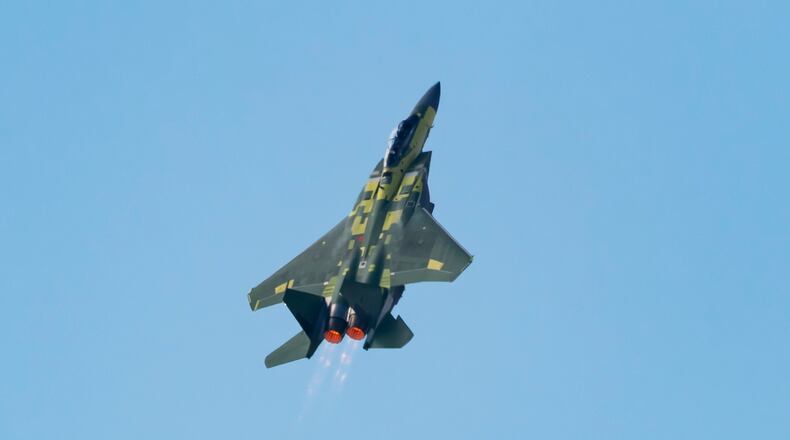“A test team monitoring the data collected during the flight in real time confirmed that the aircraft performed as planned,” Boeing said.
“Today’s successful flight proves the jet’s safety and readiness to join our nation’s fighter fleet,” said Prat Kumar, Boeing vice president and F-15 program manager. “Our workforce is excited to build a modern fighter aircraft for the U.S. Air Force. Our customer can feel confident in its decision to invest in this platform that is capable of incorporating the latest advanced battle management systems, sensors and weapons due to the jet’s digital airframe design and open mission systems architecture.”
Credit: Photographer: Eric Shindelbower
Credit: Photographer: Eric Shindelbower
The fighter’s “digital backbone” means it can serve as a testbed for future technology updates, Boeing said. Modern variants of the F-15 also include fly-by-wire flight controls, an all-new digital cockpit, modern radar and the ADCP-II, the world’s fastest mission computer.
The Department of the Air Force awarded a nearly $1.2 billion contract for its first lot of eight F-15EX fighter aircraft in July. Future plans call for as many as 144 aircraft.
Wright-Patterson is home to Air Force Materiel Command and the Air Force Life Cycle Management Center, among the many missions that make the base the heart of Air Force research and logistics efforts.
Two pre-solicitation notices from AFLCMC at Wright-Patterson in January 2020 launched the process of the Air Force’s purchase of the planes.
The planes are powered by F110-129 engines from GE Aviation, another big Ohio and Dayton-area employer.
“The F-15EX is the most affordable and immediate way to refresh the capacity and update the capabilities provided by our aging F-15C/D fleets,” Gen. Mike Holmes, commander of Air Combat Command, said in the spring.
The F-15 has been a dominant fighter since it entered service in 1976.
About the Author


